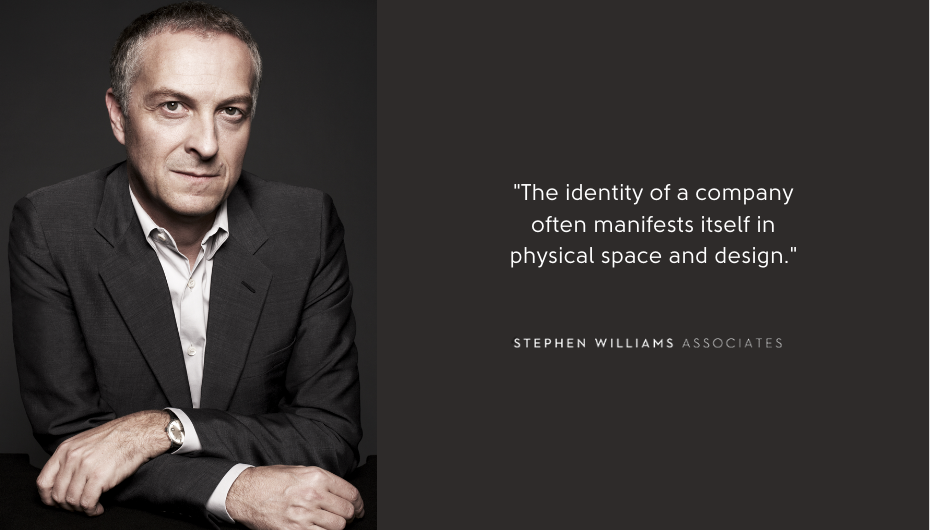This month we had the pleasure of talking with Stephen Williams of Stephen Williams Associates. In this two part conversation, Stephen joins us to discuss the impact of the current pandemic on our working environment and the changing requirements for workplace design.
After moving to Germany from the UK over 25 years ago, Stephen now runs his own design agency working with a wide range of clients including Bugatti and 25hrs Hotels. Based in Hamburg, his team works from a converted paper warehouse overlooking the canals that connect the city to Hamburg harbour.
Designflooring: The coronavirus pandemic has had an unprecedented impact on how we work. We are working at home and holding virtual meetings with colleagues and customers which has given many of us a more flexible attitude to office and home based work. Do you think this will have a long lasting effect on how we design and use our office space?
Stephen: The key point for me about office space is that it provides an environment where people can connect and communicate. Working from home has limitations on creative collaboration and innovation which normally is more successful in team structures.
The cost of physical office space is usually 10% of overall company costs. In the past we have found that clients would reduce the amount of rental space in an attempt to save costs but this can be detrimental to the quality of the work environment and can result in a significant reduction in productivity which ultimately affects the company’s strength.
I am sure that we will continue to see businesses wanting to retain a physical office location to get teams together as well as a visual representation of its brand and philosophy. The businesses that I speak to are still planning on people being able to come together and are looking to make space for safe human interaction. I think remote working will continue but the office must adapt to enable meaningful communication between employees in the office and externally. These tools must be very fluid.

Designflooring: While we have all been working from home and using the time we previously spent commuting to take a walk in our local neighbourhoods and parks, we have become a lot more aware of environmental issues and the importance of being in nature. Have you seen any change in the approach of your clients to connecting their businesses with their local environment?
Stephen: The identity of a company often manifests itself in physical space and design. When many employees are working from home they do not experience this environment and so miss out on the benefits of ‘belonging’. Here in Germany, there is a term ‘Bindung’ which relates to human connectivity with a space on an emotional level. Businesses are really taking these environmental elements seriously and we are having conversations with clients looking to take offices outside of cities to more rural areas to make them accessible for those who choose to live in the countryside.
Designflooring: With this increase in flexible working and a move to satellite and hub offices, do you think there could be a more dynamic market for co-working spaces, either bespoke or as part of a diversified offering by non-traditional venues such as hotels?
Stephen: Actually I’m quite sceptical of co-working as a concept if sold together with the idea of creative collaboration. The generic design clichés of industry lamps and shabby chic doesn’t really do much to foster creativity in my opinion.
The suggestion that hotels become co-working spaces is difficult to achieve because the spaces in the lobbies are too small and it’s difficult to charge someone for sitting an open space and working. Here in Germany we find that co-working spaces are used a lot by large companies who are looking to take advantage of convenient short leases. When these collaboration spaces aren’t used as intended and their potential for creativity is lost which is a shame.
We know that flexible and healthy interiors benefit wellbeing, job satisfaction and productivity. I am hopeful that our experiences over the past year will inspire different ways of thinking about how we use our office spaces and to appreciate them more.
In part two of our conversation, we chat with Stephen about how future workplace designs will look to meet our changing needs for flexibility, sustainability, health and wellbeing. Look out for our blog next month.
To find out more about Stephen’s work, visit www.stephenwilliams.com




